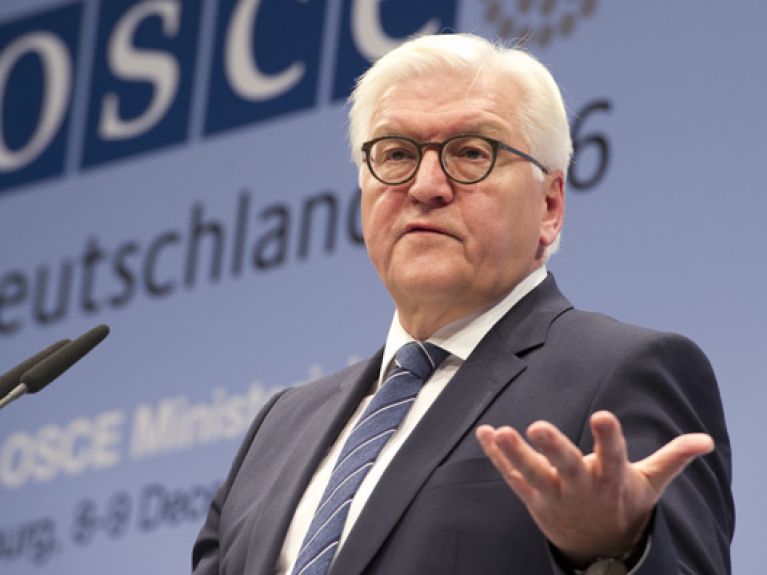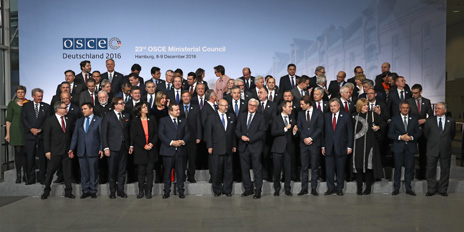OSCE Ministerial Council in Hamburg
German Federal Foreign Minister Frank-Walter Steinmeier views the results of the OSCE Ministerial Council in Hamburg favourably.

Two days, more than 40 foreign ministers and the big issues of European security – the OSCE Ministerial Council in Hamburg came firmly under the sign of political conflicts and controversial debates. The Organization for Security and Co-operation in Europe (OSCE) has long since shown what it can achieve: Across all the ideological and political divides, the conference provided a space for dialogue and understanding.

“Serious threats to peace and security, in fact even the question of war and peace, have returned to Europe, and thus to us here in Hamburg, too,” commented German Federal Foreign Minister Frank-Walter Steinmeier. He went on to say that in the run-up to the meeting it had been clear that the conflicts and tension relating to developments in East Ukraine and the annexation of Crimea could not be resolved overnight.
For Steinmeier this was precisely why the OSCE Ministerial Council meeting was such a crucial symbol. “If the OSCE did not exist, we would have to invent it,” Steinmeier professed. There were countless talks out in the open and in the wings. Steinmeier closely discussed the most urgent global security questions, among others with US Secretary of State John Kerry and his Russian counterpart Sergei Lavrov.
In the concluding declaration by the Chair, the parties to the conflict in Ukraine were called upon to finally implement the rules set out in the Minsk Protocol. There was a great deal of support for Steinmeier’s initiative to develop a new mechanism for conventional armaments control.
The “troika” of Germany, Austria and Italy – and it plays a decisive role in the OSCE’s work – declared it was making disarmament one of its four priorities. The OSCE troika is made up of the country in the chair, its predecessor and its successor. Its composition changes each year.
The Ministerial Council did not only discuss the Ukraine conflict, however. It agreed more than ten resolutions on a broad range of topics, ranging from migration to cyber-security.
In this context, German Federal Foreign Minister Steinmeier said in his closing statement that “we have stimulated ideas on how to better equip the OSCE in the fight against terrorism. We cast a close eye at the use of small arms, the issue of airline passenger data, and the challenges in cyberspace.”
Steinmeier also emphasized that “we made decisive progress on the question of armaments control. And with a declaration on the Transnistria Negotiations in the 5plus2 format we also addressed a regional conflict. This shows that advances can even be made during difficult times as long as we work together pragmatically.”
The OSCE Ministerial Council also marked the end of Germany’s tenure as OSCE Chair. Germany assumed the helm during turbulent times, Steinmeier noted. “All year long we really needed our sea legs, all of us, from the captain to those in the engine room, given the high political seas and the storms in all seasons.” He thanked the OSCE Secretariat for its strong support. Austria will assume the OSCE Chair for the coming year.

